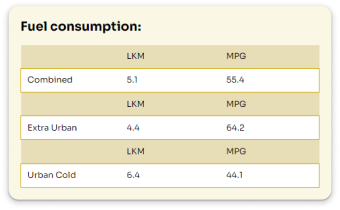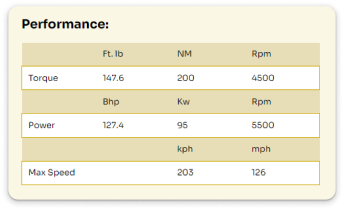MPG Check By Reg Number
MPG Check is a useful tool that allows car owners to access their vehicle’s fuel efficiency data. By entering the registration number, the tool can provide accurate MPG readings, which can help drivers make more informed decisions about their car’s fuel consumption and maintenance.
- Lowest price check
- Great Customers Review
- Fast and Accurate
Why Do I Need to know my car’s MPG?
Knowing your car’s MPG, or miles per gallon, is important for several reasons.
- It helps you understand your vehicle’s fuel efficiency, which can save you money on gas over time. By monitoring your car’s MPG, you can identify if there are any changes in fuel efficiency and take necessary measures to maintain it.
- knowing your car’s MPG can also help you estimate your fuel costs and budget accordingly. If you know how far your car can travel on a gallon of gas, you can calculate how much you’ll spend on fuel for a particular trip or for a month.
- Monitoring your car’s MPG can help you identify any issues with the engine or fuel system. If you notice a sudden drop in fuel efficiency, it could be a sign of a problem that needs to be addressed.
- understanding your car’s MPG is an important step toward reducing your carbon footprint. By using less fuel, you can help to reduce your vehicle’s emissions and contribute to a healthier environment.


MPG Rating Scale
The MPG (miles per gallon) rating scale is a measurement system used to assess the fuel efficiency of vehicles. It indicates the average number of miles a vehicle can travel on one gallon of fuel. The higher the MPG rating, the more fuel-efficient the vehicle is considered to be.
Miles Per Gallon
Rating
- 60+ MPG
- 50 – 59 MPG
- 40 – 49 MPG
- 30 – 39 MPG
- 20 – 29 MPG
- Excellent
- Good
- Average
- Fair
- Poor
This scale helps consumers compare different vehicles and make informed decisions based on their fuel efficiency needs. A higher MPG rating can result in cost savings on fuel expenses and a reduced environmental impact by consuming less fossil fuel. Manufacturers strive to improve MPG ratings through advancements in engine technology, aerodynamics, and hybrid or electric powertrains, promoting sustainability and energy efficiency in the automotive industry.
How To Check Car MPG by Reg
To check your car’s MPG by reg number using a smart car check service, you can follow these steps:
- Enter your Vehicle registration number on the smart car check website.
- The service will then provide you with a comprehensive report on your car’s history, including its MPG rating.
- The report will include official MPG figures from the manufacturer, as well as data on fuel consumption from real-world driving conditions.
- You can also use this report to identify any issues with your car that may be affecting its fuel efficiency.
Keep in mind that smart car check services usually require payment, but the information provided can be very helpful in understanding your car’s history and performance.
Frequently Asked Questions (FAQs)
What is MPG?
MPG stands for miles per gallon and is a measure of a vehicle’s fuel efficiency. It represents the number of miles a car can travel on one gallon of fuel.
How do you calculate MPG?
To calculate MPG, divide the number of miles traveled by the amount of fuel used. For example, if you traveled 200 miles on 10 gallons of gas, your MPG would be 20 (200/10).
How accurate are official MPG figures?
Official MPG figures are determined by laboratory tests under controlled conditions, which may not accurately reflect real-world driving conditions. Therefore, they may not be entirely accurate, and your car’s actual MPG may vary depending on various factors such as driving style, terrain, and weather.
What’s the difference between MPG and True MPG?
True MPG is a measure of a car’s fuel efficiency under real-world driving conditions, which is often lower than the official MPG figure due to factors such as traffic, driving style, and temperature.
What is a good number of miles per gallon?
A good number of miles per gallon varies depending on the type of vehicle, but generally, the higher the MPG, the better the fuel efficiency. As of 2021, the average MPG for cars in the US is around 25 MPG, while some hybrid and electric cars can achieve over 50 MPG.
How can I improve my fuel economy?
To improve fuel economy, you can drive more efficiently by avoiding sudden accelerations and braking, maintaining proper tire pressure, removing unnecessary weight from your car, and using the air conditioning sparingly.
What effect do turbos have on MPG?
Turbos can have a negative impact on MPG, as they can increase fuel consumption by increasing the engine’s power output. However, some modern turbocharged engines are designed to be more efficient and can achieve better fuel economy.

